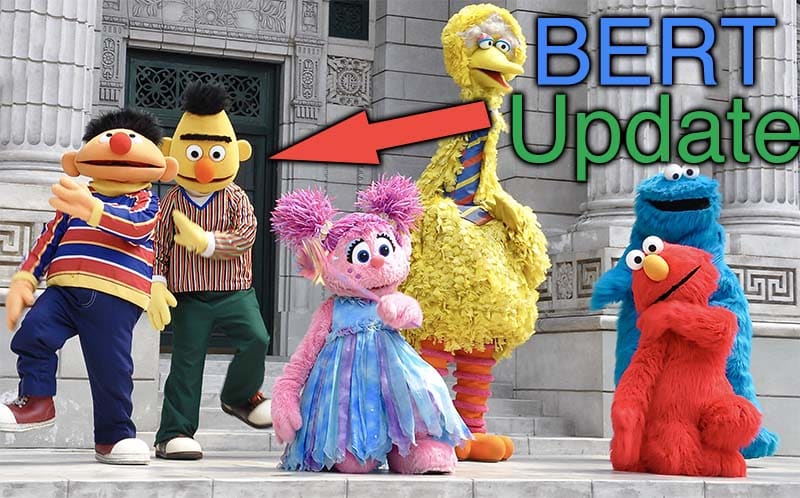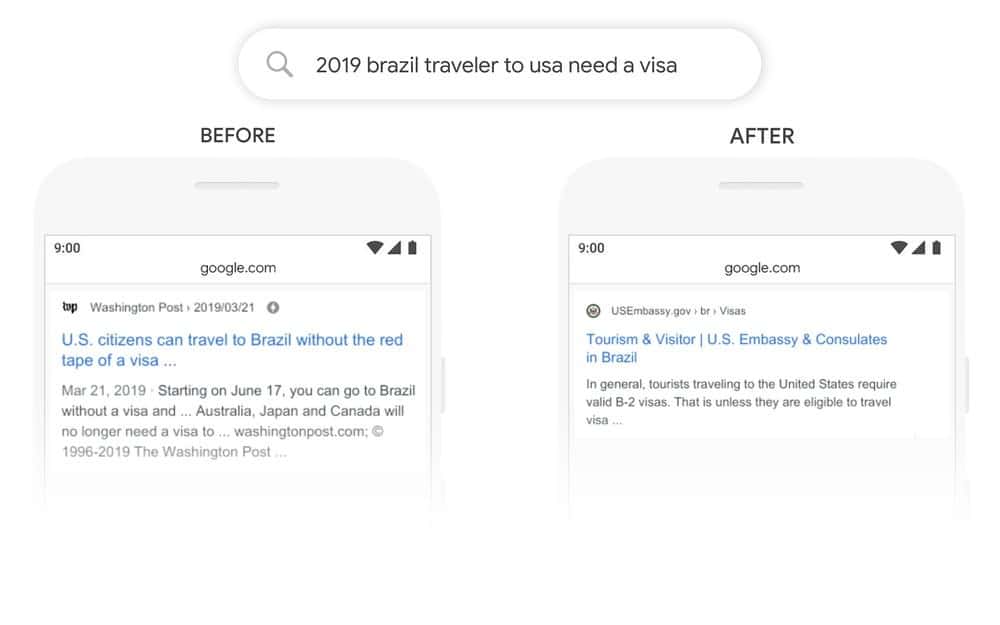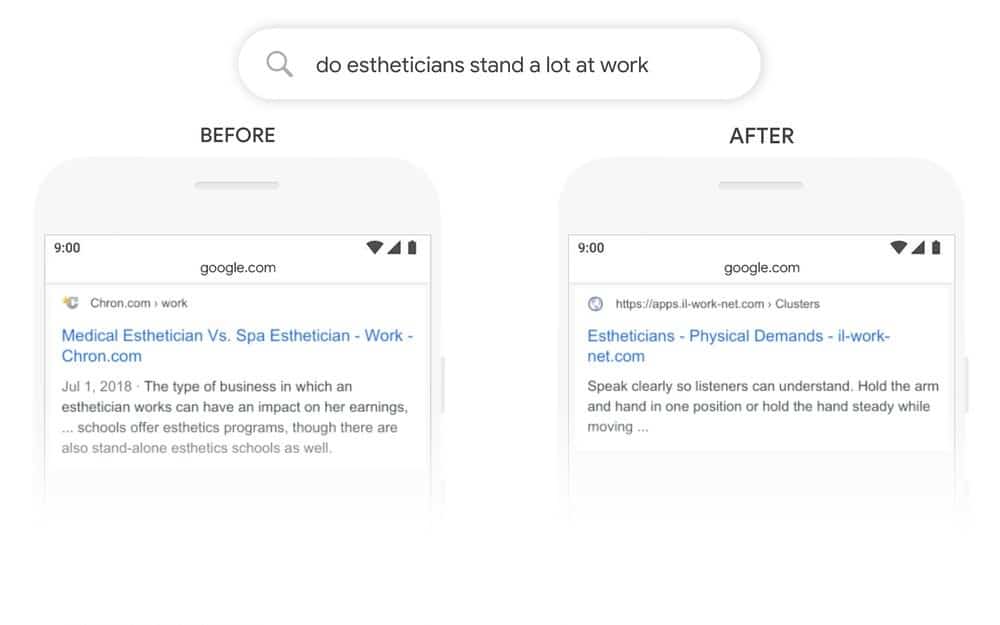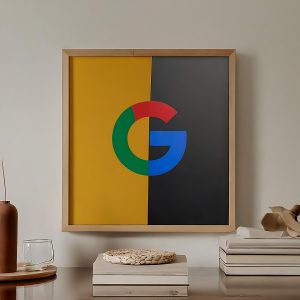This morning it was announced that Google has released an update (labeled BERT), which is different than the core update that was released last month and is related, however not a substitute for, Rank Brain.
BERT means Bidirectional Encoder Representation from Transformers
You can read the official release here – https://www.blog.google/products/search/search-language-understanding-bert/.
Barry Schwartz (from Search Engine Roundtable) also released a good write up that lists how the update will affect organic search – https://www.seroundtable.com/google-bert-update-28427.html.
What is the BERT Algorithm & What Does it Do?
BERT (short for Bidirectional Encoder Representations) “enables anyone to train their own state-of-the-art question answering system”. What this means is that Google will be better able to understand a user’s question (including a greater understanding of nuance) and serve that user answers that are more related to the query than before.
For example, from Google:
Here’s a search for “2019 Brazil traveler to USA need a visa.” The word “to” and its relationship to the other words in the query are particularly important to understanding the meaning. It’s about a Brazilian traveling to the U.S., and not the other way around. Previously, our algorithms wouldn’t understand the importance of this connection, and we returned results about U.S. citizens traveling to Brazil. With BERT, Search is able to grasp this nuance and know that the very common word “to” actually matters a lot here, and we can provide a much more relevant result for this query.
The ability to understand this kind of nuance is vital as more and more searches come from non-traditional methods like assistants and smart speakers.
A 2018 report from Voicebot.ai (https://voicebot.ai/2018/04/02/smart-speaker-owners-use-voice-assistants-nearly-3-times-per-day/) found that on average users polled used their smart speakers 1-2 times per day, with 12 percent of respondents using their smart speaker 6 times per day.
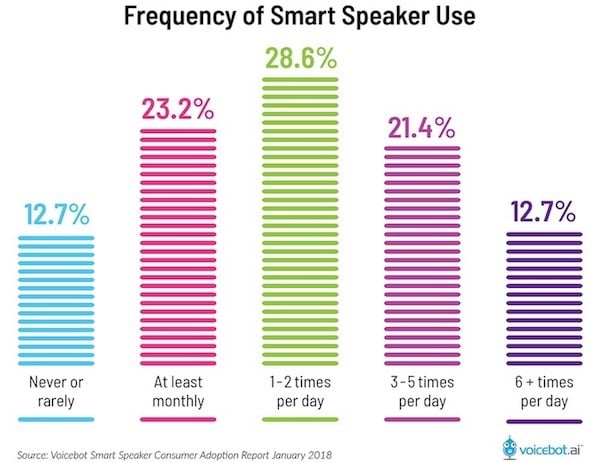
As users become more comfortable with voice assistants and smart speakers, they will use them more and more to search for answers. Asking questions verbally is a lot different than the traditional methods of search where queries were more keyword-driven.
Instead of using a few choice keywords to attempt to find the information they are looking for, users are asking questions like they would ask an expert and so Google has to produce an answer that is satisfactory, regardless of the variations of how the question is asked. This is why BERT is seeking to understand the parts of speech between the keywords and serve the user content that matches those parts of speech.
Another example from Google is for the question “do estheticians stand a lot at work”:
Previously, our systems were taking an approach of matching keywords, matching the term “stand-alone” in the result with the word “stand” in the query. But that isn’t the right use of the word “stand” in context. Our BERT models, on the other hand, understand that “stand” is related to the concept of the physical demands of a job, and displays a more useful response.
What Can Webmasters Do in Light of the BERT Update?
There is no way to optimize for this kind of search as the results that are given will be based on the specific query the user has. What is important is that your team writes content that answers questions in a way that is specific and targets the exact intent that a user is searching for.
Content that answers overly broad questions may be less likely to appear in the smart snippets, as they may not be deemed as relevant. This does not mean that the site should not seek to also answer the broad questions as these are still relevant for organic search rankings, but keep in mind that the smart snippets are mainly used to answer a specific question so having some content on a page that is relevant to that question ups the chances of getting seen in the results.
So far, the general effects of this update have been minimal, however, Google has remarked that this update will affect 10% of queries, which is a very large sum.
